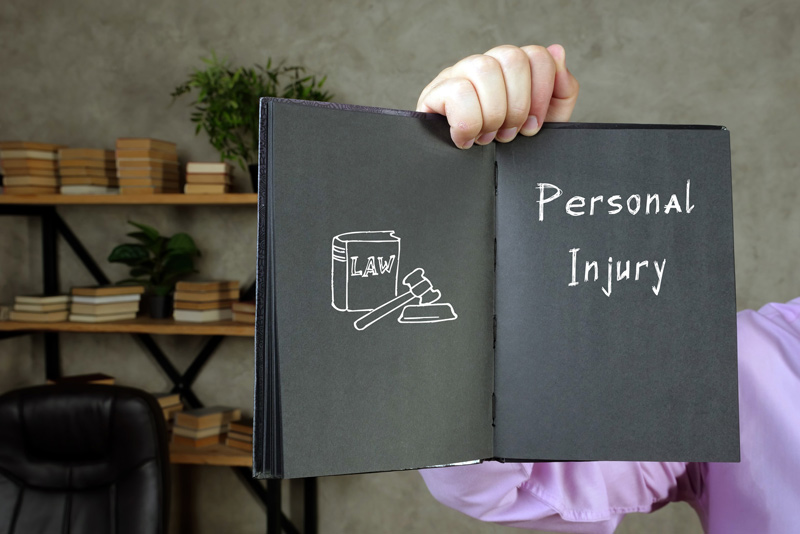Personal injury cases as well as social security disability claims involve comprehensive medical records review. Given the challenges involved in reviewing voluminous medical charts, most attorneys handling such cases prefer to work with medical review services to save time and effort and gain efficiency. In this blog, we look at how a personal injury settlement could affect a claimant’s disability benefits.
SSDI and SSI Benefit Programs
Before moving on to the main topic, let us consider the two types of benefits social security provides to disabled Americans. These are SSDI (social security disability income) and SSI (supplemental security income). These programs have unique eligibility requirements. SSDI is available to disabled individuals who have worked and paid taxes to social security. In certain cases, a disabled person could be eligible for SSDI benefits based on the social security contributions from their spouse or parents. SSI is a federally funded supplemental income program that provides financial support to low-income, disabled, blind, and aged Americans. It is a needs-based government benefit.
Personal Injury Settlement vs SSDI/SSI Benefits
A personal injury case arises when a person is injured from the actions or omissions of another person. It allows the injured victim to seek compensation for direct monetary losses such as medical expenses, property damage, lost wages as well as non-economic losses such as pain and suffering, diminished quality of life, and mental distress caused by the injury. The injured person could receive a significant settlement from the personal injury lawsuit and the important question is whether it could affect the disability benefits they are already receiving. According to an article posted in www.burge-law.com, it depends on whether the claimant is receiving SSDI or SSI benefits. SSDI benefits are generally not impacted by a personal injury settlement award. However, if the clamant is receiving SSI benefits, the settlement could result in the benefits being decreased.
As an article in www.cbmclaw.com states, SSDI benefits are funded through Social Security Trust fund and eligibility is determined on the basis of the total number of work credits the claimant has accumulated. A person who has a qualifying disability and who has worked the required length of time, and paid into the social security program via taxes, will qualify for benefits. Receiving a large settlement for personal injury doesn’t impact their eligibility. The article highlights two concerns the claimant must be aware of when pursuing a personal injury claim.
- The settlement award may not be as much as other people with the same type of injury. This is because the claimant who is already receiving disability benefits is not working or is performing only a limited amount of work. People who are working full-time and getting injured receive compensation for lost wages and lost future earning capacity, which the claimant may not receive because he/she is already receiving SSDI benefits when the accident occurred.
- The defendant in the personal injury case may raise the objection that the claimant has a pre-existing condition for which he/she is already receiving disability benefits. Their argument could be that the claimant’s injuries would not have been as severe if he/she didn’t already have a health issue. This could lead to a lower settlement award.
These attorneys point out that to be prepared for this possibility, the claimant should seek medical attention immediately after the accident and also keep all doctor appointments while also following the advice of his/her doctor and attorney. With complete documentation of all treatments availed of, the claimant stands a better chance of minimizing the impact of the defendant’s line of argument.
SSI program doesn’t require the disabled person to qualify via work credits. As it is a “needs-based” program, eligibility is based on the applicant’s income and assets. When the claimant receives a personal injury settlement, it could result in the claimant exceeding the program’s asset limits. As a result, the SSI benefits could be suspended. burge-law.com points out that an SSI recipient could avoid losing the SSI benefits when receiving a personal injury settlement in the following ways.
- They could spend the excess funds (spend down) until the amount reaches the allowable asset maximum.
- By paying off a home mortgage
- Education expenses
- Pay off current debts such as student loans and credit cards
- Make home repairs/modifications to accommodate the SSI recipient’s disabilities
- Prepay for burial expenses.
- The second alternative is to set up a special needs trust, which is designed for physical or mentally disabled persons. The trust is managed by a third party that supervises expenditures from it.
As a medical claims review provider for personal injury and social security disability attorneys, we understand that claimants can benefit from the expert legal advice provided by an attorney. This is mainly because personal injury cases themselves are complex, and these become more intricate when a settlement is involved. An experienced attorney knows the best way to approach the case and would help the claimant structure his/her settlement so that they receive the maximum benefit considering both the SSDI program and the personal injury settlement.




